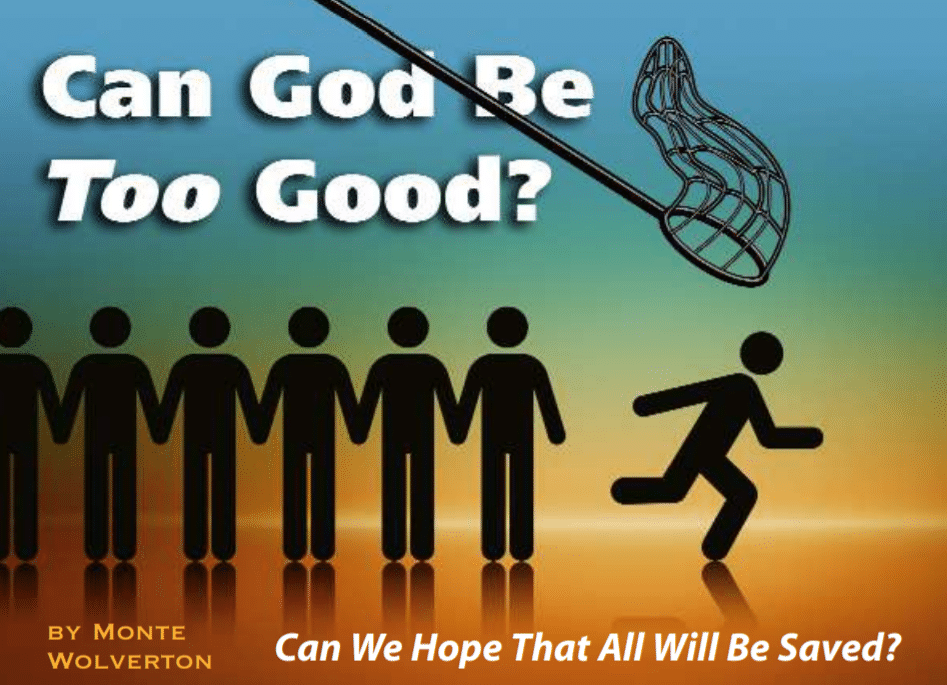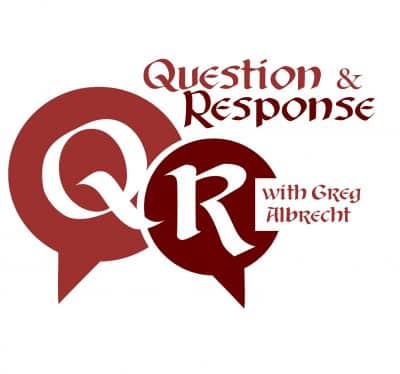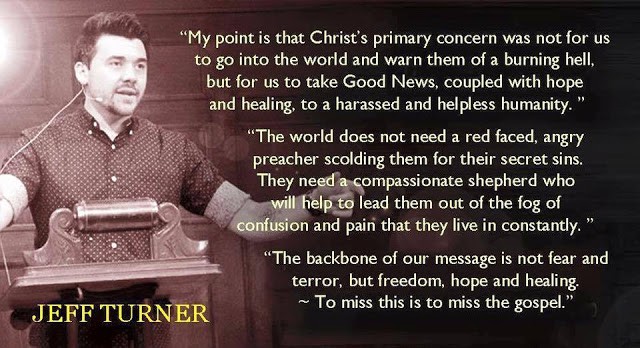Can God Be Too Good? Part 8 by Monte Wolverton

What Does It All Mean?
1,500 years later—what does this mean for us? What about Ed Thompson—and his family in anguish and doubt over the fate of their atheist father?
What about the billions of people in parts of India and China for whom Jesus is nothing more than a strange, foreign demigod? What about billions of Aztecs, ancient Egyptians, Babylonians and other men, women and children who, for all we know, died ages ago never knowing about Jesus?
Are all these people “saved” or are they “lost”? While many religious institutions claim to know the answer, the truth is that no one can say for sure. What we do know is this:
• When we remove our dogmatic reading glasses, Scripture allows
for the possibility of ultimate redemption for all.
• We also know that in an earlier age (before dogmatic church/state
institutions quelled such speculation), devout and learned Christian
leaders freely and openly discussed the hope of universal reconciliation. Considered one of the most important theologians of the 20th century, Swiss Catholic Hans Urs von Balthasar (1905-1988) expressed hope that all will be saved while warning we must not assert such a belief dogmatically.
• We know from Scripture that God is infinitely merciful and extends his grace to all his creation. Given this emphasis, dogmatic insistence on eternal torture and suffering is inconsistent with the gospel.
• It seems both biblically reasonable and Christ-like to believe that God allows every human being a choice—that human beings have free will.
• Further, depending on how one defines freedom it may be that some choices could be freely made only in the afterlife—free from the encumbrances that enslave many in our world.
• But since by its very nature, the outcome of free will can’t be predicted with certainty, neither can we know dogmatically whether all will ultimately respond to God’s grace.
• Beyond this, we can’t fully know, understand, predict or fathom the judgment and mercy of God. Since God’s will is truly free, we can’t presume (as many have done) to place him in a corner in terms of his decisions and plans.
• So, as we attempt to understand God and his wisdom and grace, we will err—but surely God would prefer us to err on the side of more individuals
being with him for all eternity than a small remnant of our particular denominational brand of theological thinking.
• If we are truly in Christ and he in us we cannot help but hope. We can have peace and confidence that we do not need to anguish over departed friends and loved ones. Rather than dogmatic condemnation, or anxious uncertainty, our response to the question of what will happen to all humanity for all eternity can be hope. ❑
- http://www.barna.org/faith-spirituality/484-what-americans-believe-about-universalism-and-pluralism
- Her Gates Will Never Be Shut, Brad Jersak, Wipf and Stock publishers, Eugene, Oregon.
- The Extent and Efficacy of the Life and Work of Jesus Christ, James A. Fowler, http://www.christinyou.net/pages/pdfs/ExtentEfficacyEbook.pdf
For Further Reading:
Universal Solution? The Current Debate, Robin A. Parry and Christopher H. Partridge
Love Wins: A Book About Heaven,Hell and the Fate of Every Person Who Lived, Rob Bell
The Inescapable Love of God, Thomas Talbot
The Evangelical Universalist, Gregory McDonald
Christian Universalism: God’s Good News for All People, Eric Stetson
Hope Beyond Hell: The Righteous Purpose of God’s Judgment, D. Scott Reichard and Gerry Beauchemin
Dare We Hope That All Men Be Saved? Hans Urs von Balthasar










 Plain Truth Ministries | Box 300 | Pasadena, CA 91129-0300
Plain Truth Ministries | Box 300 | Pasadena, CA 91129-0300

